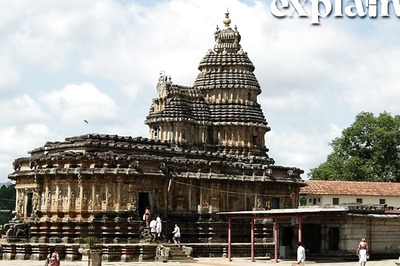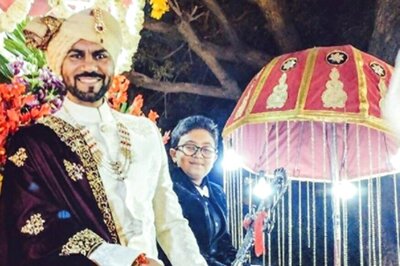
views
``The identity of the Siddis is as distinctive as it is enigmatic.They have no memory of their ancestral lineage.Some say they arrived with the Portuguese as slaves from the colony of Mozambique while others were brought from the Congo, Kenya and Sudan by Arabs.Through my photographs, I have strived to imbibe some of their charismatic features,” said K Venkatesh, a Bangalore based freelancer news photographer.With culture and tradition smitten into their existence, this African tribe has found solace in the forests of Western Ghats for the past 400 years.In an attempt to trace their origins and revisit history, K Venkatesh captured some timeless emotions and memories with his exhibition titled Siddis: A lost tribe at Karnataka Chitrakala Parishath recently.Having its roots in Africa, these folks have embraced the tribal way of life.Imparting a culture of traditional knowledge and ancient wisdom, their way of existence is symbiotic to nature.Fiercely protecting their identity, each and every individual of the tribe constantly strives to strike a balance between traditional customs and a modern lifestyle.They live in settlements scattered in Uttara Kannada, Dakshina Kannada, Kodagu, Shimoga and Chikkamagalur districts.On January 8, 2003, the Union government brought the Siddis under the list of Scheduled Tribes with a view to empowering them constitutionally and enhancing their social and economic status.“Siddis definitely belong to one of the most poverty stricken clans.Aside from their economic and social status being extremely backward; the areas inhabited by them lack hygiene and proper sanitation facilities.They have their own schools to educate their children.In fact many people are unaware of their existence.They speak a language called Are-Marathi, which is a mixture of Kannada, Marathi and Konkani.The Siddis of Karnataka also believe that US President Barack Obama shares their gene pool and wanted to gift him a bottle of honey during his last visit to India.Unfortunately, it never reached him,” he further added.African roots There is an unwritten understanding that no Siddi should eat without working, except in illness or old age.This tradition, too, has African roots.The tribal chiefs in Senegal, who lived lives of luxury, were not buried in earth but in holes in baobab trees.The privilege of a burial in earth was only for those who had drenched the ground with the sweat of toil.The Siddis passionately enjoy life and dance frequently.Occasions such as births, marriages, festivals or deaths are celebrated with drinking and dancing.They do not go to the police or the courts, relying instead on elders to resolve differences.Despite the religious differences, one practice common to all Siddis is the worship of ancestors, or Hiriyara Puje.This is reminiscent of a tradition that is almost universal in Africa.The Siddis believe that the dead stay close to the living, but in the form of spirits.Dead ancestors are venerated during marriages and other rituals.They are ‘consulted’ and spoken to frequently.On such occasions, the ancestors are invited to reside in an unhusked coconut which is kept on a pedestal at home and worshipped.“Personally, I find photography an extremely liberating experience.Not only is capturing the essence of true emotions a challenge but it allows me to build a connection with my subjects.And, I thoroughly enjoyed my time with the Siddis.,” said Venkatesh.


















Comments
0 comment